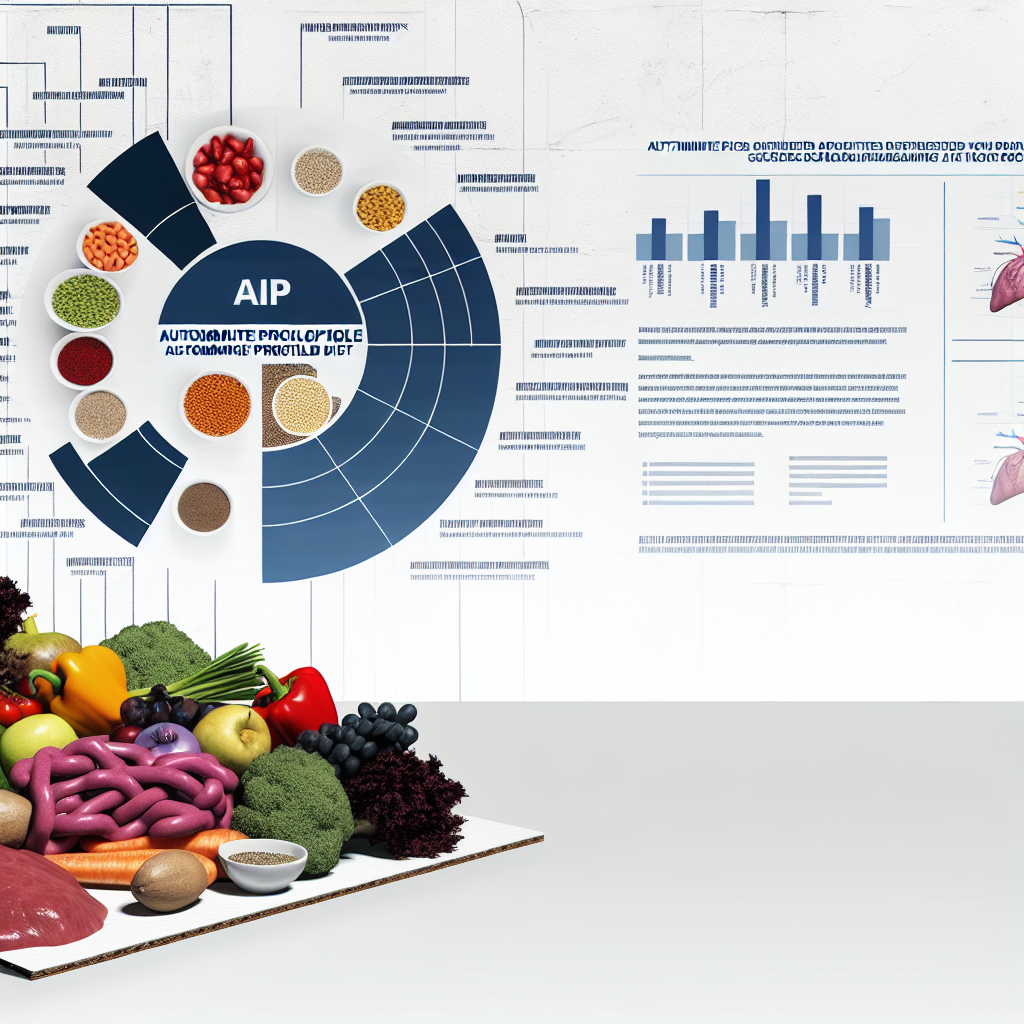Beyond Turmeric: The Clinical Evidence for 8 Underrated Anti-Inflammatory Foods
Introduction
Inflammation is a natural response of the immune system, helping the body fight infection and heal injury. However, chronic inflammation has been linked to serious health conditions, including heart disease, diabetes, arthritis, and even certain cancers. While turmeric, specifically its active compound curcumin, has received widespread attention for its potent anti-inflammatory properties, there are several other foods that provide equally significant benefits but often go unnoticed.
The human diet plays a critical role in managing inflammation, and incorporating anti-inflammatory foods can significantly improve long-term health. Natural dietary interventions offer safer, holistic strategies to combat inflammation without adverse effects.
This article delves into the clinical evidence supporting eight underrated anti-inflammatory foods. These foods contain bioactive compounds, antioxidants, and essential nutrients that regulate inflammatory pathways in the body. Scientific studies have explored how these foods influence markers of inflammation, offering compelling reasons to incorporate them into daily diets.
By highlighting research-backed alternatives, we aim to provide valuable insights for those looking to optimize their health naturally. Whether you suffer from autoimmune conditions such as rheumatoid arthritis, experience persistent joint pain, or simply want to reduce inflammation to promote longevity, exploring these lesser-known but powerful anti-inflammatory foods is a step in the right direction.
8 Clinically Supported Anti-Inflammatory Foods You Should Know About
1. Beets: A Natural Ally Against Inflammation
Rich in nitrates and betalains, beets have been shown to support vascular health and reduce oxidative stress. A study published in Nutrients (2016) found that beetroot juice lowers markers of inflammation while improving endothelial function.
2. Cherries: The Power of Anthocyanins
Tart cherries contain anthocyanins, plant pigments known for their strong anti-inflammatory effects. Research in Nutrients (2019) suggests that regular consumption of tart cherry juice reduces biomarkers associated with arthritis and muscle soreness.
3. Broccoli Sprouts: A Sulforaphane-Rich Superfood
Sulforaphane, a compound in cruciferous vegetables, has demonstrated powerful anti-inflammatory properties. A Journal of Medicinal Food (2018) study reported that sulforaphane suppresses inflammatory responses at the cellular level and may help prevent chronic inflammatory diseases.
4. Ginger: A Natural Alternative to NSAIDs
Often compared to turmeric for its medicinal benefits, ginger contains gingerol, which has been shown to reduce pain and inflammation in patients with osteoarthritis, according to research published in Osteoarthritis and Cartilage (2001).
5. Pineapple: Bromelain’s Inflammation-Fighting Benefits
This tropical fruit contains bromelain, a digestive enzyme with known anti-inflammatory benefits. Studies, including one from Biotechnology Research International (2012), indicate bromelain’s effectiveness in reducing symptoms of inflammatory bowel disease and nasal inflammation.
6. Flaxseeds: A Plant-Based Omega-3 Powerhouse
High in alpha-linolenic acid (ALA) and lignans, flaxseeds exhibit properties that may reduce inflammation. A meta-analysis from Nutrition Reviews (2019) found that flaxseeds help lower C-reactive protein (CRP), a key biomarker of inflammation.
7. Black Seeds (Nigella Sativa): Immune-Boosting and Anti-Inflammatory Properties
Known in traditional medicine as a healing remedy, black seed oil has been supported by modern studies, such as one from the Journal of Ethnopharmacology (2013), which found that thymoquinone in black seeds mitigates inflammation and supports immune regulation.
8. Dark Chocolate: A Delicious Way to Fight Inflammation
High-cacao dark chocolate contains flavonoids that carry anti-inflammatory effects. A Frontiers in Nutrition (2017) study concluded that dark chocolate consumption reduces oxidative stress and improves inflammatory biomarkers.
Scientific Evidence on Underrated Anti-Inflammatory Foods
Scientific research continuously uncovers the anti-inflammatory potential of various plant-based foods. While turmeric has been extensively studied, emerging evidence identifies several lesser-known foods with significant benefits.
For example, a review published in Biomedicine & Pharmacotherapy (2020) highlights the role of anthocyanins in cherries as potent modulators of inflammation. The study found that these compounds inhibit pro-inflammatory pathways linked to joint pain and muscle damage, making cherries an attractive natural remedy for athletes and arthritis sufferers alike.
Similarly, sulforaphane in broccoli sprouts has been widely studied for its epigenetic influence on inflammatory markers. A randomized controlled trial in the American Journal of Clinical Nutrition (2018) found that participants consuming sulforaphane-rich diets experienced reduced inflammation, particularly in individuals with chronic metabolic disorders.
Beetroot, another lesser-discussed anti-inflammatory food, has been studied for its cardiovascular benefits. According to Nutrients (2016), beetroot juice consumption led to decreased inflammatory cytokines, making it beneficial for heart health and athletic recovery.
Additionally, ginger’s similarity to NSAIDs (nonsteroidal anti-inflammatory drugs) positions it as a natural alternative for pain relief. A study in The Journal of Pain (2010) concluded that daily ginger supplementation reduced exercise-induced muscle pain by 25%, showcasing its ability to ease post-workout inflammation.
These findings underscore that dietary selection plays a crucial role in inflammation management. Unlike pharmaceutical drugs that primarily target one aspect of inflammatory response, whole foods provide a spectrum of phytonutrients that work synergistically to regulate inflammation at multiple biological levels.
Conclusion: Harnessing the Power of Nature to Combat Inflammation
Chronic inflammation remains a significant contributor to many lifestyle diseases, and while pharmaceutical interventions offer relief, they often come with risks. Natural dietary approaches, on the other hand, can provide long-term benefits without harmful side effects. Though turmeric is widely recognized for its anti-inflammatory properties, a wealth of other foods also offer powerful, clinically supported benefits.
From anthocyanin-rich cherries that aid in muscle recovery to thymoquinone-packed black seeds that regulate immune function, these foods are deserving of greater attention. Scientific research supports their ability to lower pro-inflammatory markers, improve oxidative stress resilience, and support overall health.
As modern science continues to explore the complex interactions between food and inflammation, it becomes increasingly clear that embracing a variety of anti-inflammatory foods is the best approach to maintaining long-term health. Incorporating these underrated yet evidence-based natural remedies into daily meals can provide a proactive approach to inflammation control, ultimately fostering better well-being and disease prevention.
Summary:
This article explores eight underrated anti-inflammatory foods that offer significant benefits beyond the well-known turmeric. The foods discussed include beets, cherries, broccoli sprouts, ginger, pineapple, flaxseeds, black seeds, and dark chocolate. Each food is supported by clinical evidence showcasing its ability to reduce inflammation, improve markers of oxidative stress, and support overall health. The article highlights the importance of incorporating a variety of anti-inflammatory foods into the diet as a natural and holistic approach to managing chronic inflammation.

Dominic E. is a passionate filmmaker navigating the exciting intersection of art and science. By day, he delves into the complexities of the human body as a full-time medical writer, meticulously translating intricate medical concepts into accessible and engaging narratives. By night, he explores the boundless realm of cinematic storytelling, crafting narratives that evoke emotion and challenge perspectives.
Film Student and Full-time Medical Writer for ContentVendor.com




